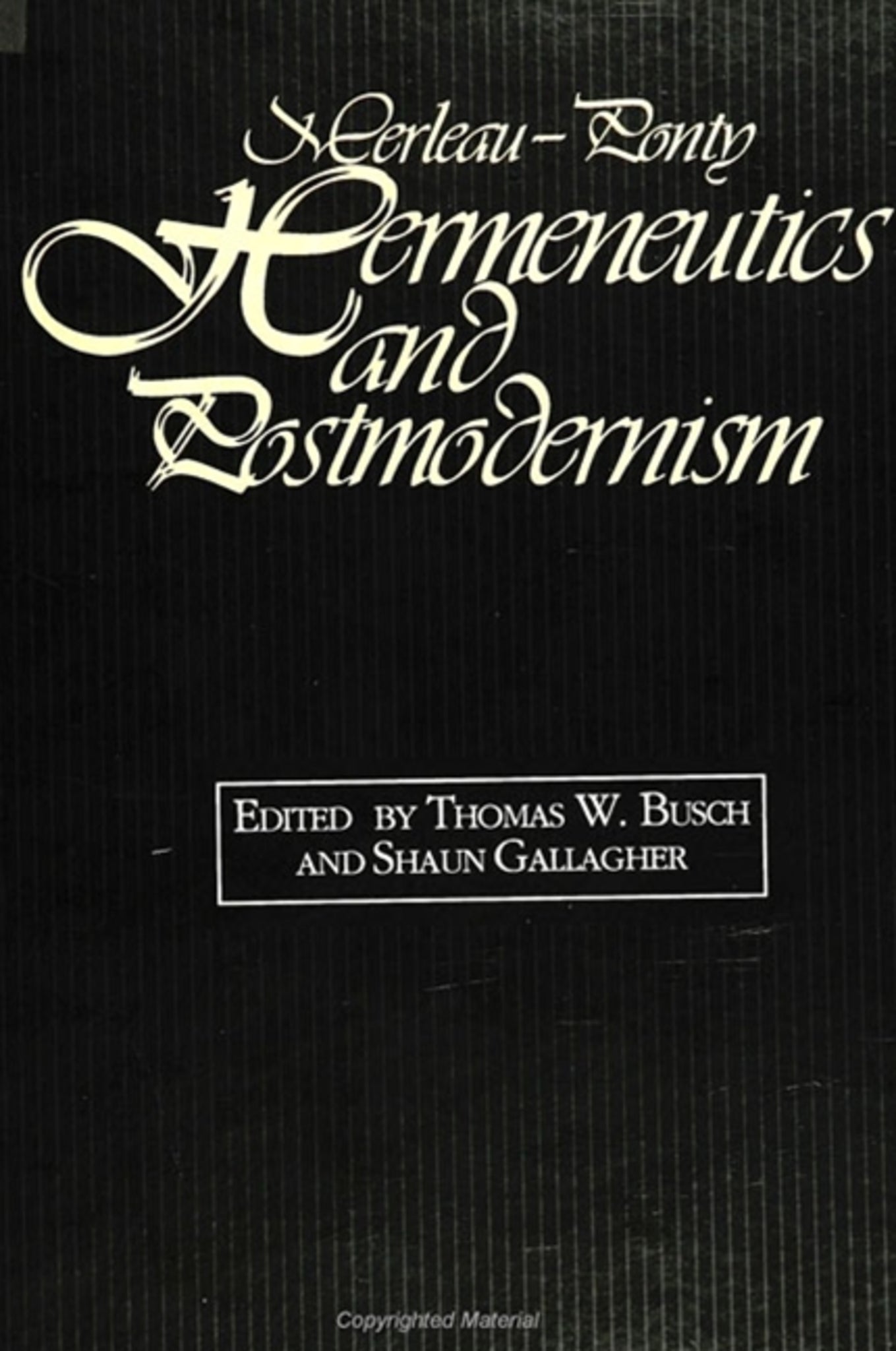We're sorry. An error has occurred
Please cancel or retry.
Merleau-Ponty, Hermeneutics, and Postmodernism

Some error occured while loading the Quick View. Please close the Quick View and try reloading the page.
Couldn't load pickup availability
- Format:
-
14 October 1992

Opens up new dimensions in the philosophical thought of Merleau-Ponty and addresses contemporary issues concerning interpretation theory and postmodernity.
This book opens up new dimensions in the philosophical thought of Merleau-Ponty and addresses contemporary issues concerning interpretation theory and postmodernity. In Part I the authors employ the texts of Merleau-Ponty to challenge many of assumptions that operate in the current field of hermeneutics. They find in Merleau-Ponty the outline of a hermeneutics of ambiguity that incorporates his accounts of the human body, language, and temporality in working out the concepts of interpretation, context, perspective, truth, and interpersonal transgression. Merleau-Ponty thus enters into a productive dialogue with contemporary thinkers such as Gadamer, Ricoeur, Habermas, Levinas, and Derrida.
Part II engages Merleau-Ponty with the "many voices" of postmodernism. Some of the most able Merleau-Ponty interpreters reveal the richness of his work through variant readings. Can Merleau-Ponty be construed as a postmodern thinker, or as a critic of postmodernism? To what extent can the concepts of flesh, reversibility, and ecart be made to function as deconstructive non-concepts? What can Merleau-Ponty contribute toward a postmodern politics? These essays move the discussion from Derrida to Deleuze, Foucault, and Lyotard.


"The topic is a live one, important both in itself and for what it adds to contemporary thought. Rereading Merleau-Ponty in the light of the post-structural writings since his death suggests that he has something in common with them but that he also has something more which might add significantly to their views." — Lewis E. Hahn, Southern Illinois University
Acknowledgments
Abbreviations
General Introduction
Part One: Hermeneutics
1. Introduction: The Hermeneutics of Ambiguity
Shaun Gallagher
2. Context and Perspective
Gail Weiss
3. Perception, Finitude, and Transgression: A Note on Merleau-Ponty and Ricoeur
Thomas W. Busch
4. Perceiving/Reading the Other: Ethical Dimensions
Michael Yeo
5. Merleau-Ponty and the "Backward Flow" of Time: The Reversibility of Temporality and the Temporality of Reversibility
Glen A. Mazis
6. Language and Imperfect Consensus: Merleau-Ponty's Contribution to the Habermas-Gadamer Debate
Shaun Gallagher
7. Did Merleau-Ponty Have a Theory of Perception?
G. B. Madison
Part Two: Postmodernism
8. Introduction: "...Being...which is Staggered Out in Depth..."
Thomas W. Busch
9. Between Phenomenology and (Post)Structuralism: Rereading Merleau-Ponty
G. B. Madison
10. Merleau-Ponty and Postmodernism
M. C. Dillon
11. Between Merleau-Ponty and Postmodernism
Hugh J. Silverman
12. Phantasmic Genealogy
Derek Taylor
13. Toward a Phenomenology of Politics: Expression and Praxis
Eleanor Godway
14. The Politics of Contingency: The Contingency of Politics—On the Political Implications of Merleau-Ponty's Ontology of the Flesh
Geraldine Finn
15. Temporality: Merleau-Ponty and Derrida
M. C. Dillon
16. Two Reversibilities: Merleau-Ponty and Derrida
Mark Yount
17. Phantom Equator
Alphonso Lingis
18. Merleau-Ponty and Postmodernism
Joseph Margolis
Contributors
Name Index



